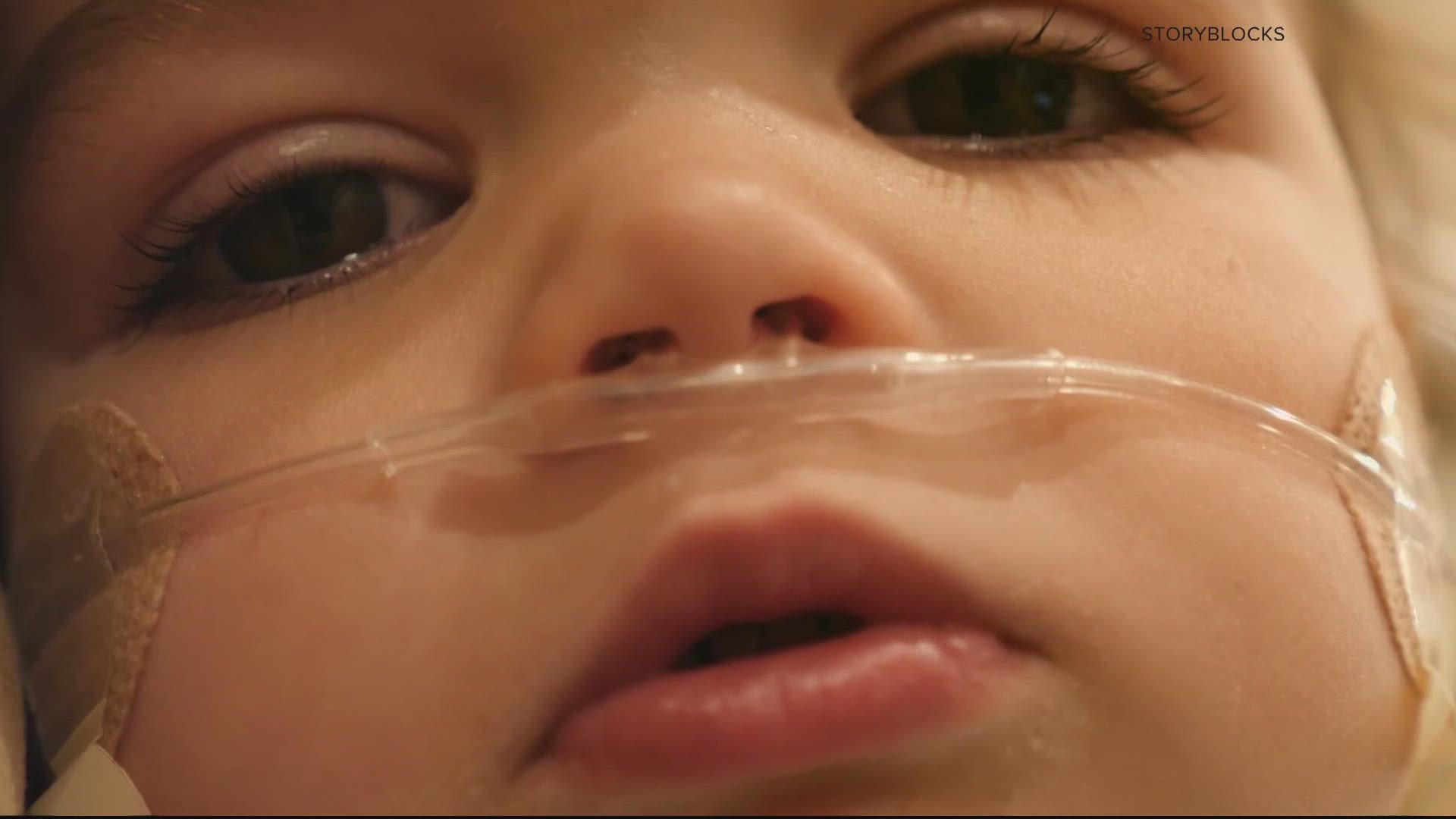WASHINGTON — Hospitals around the country are experiencing an influx of RSV patients, especially children, during a surge that doctors say is earlier in the season than typical.
RELATED: 'You have a lot of susceptible children' | Health experts warn that RSV cases are on the rise
Staying on top of this story means not just tracking the numbers or health alerts, but finding out what you need to know in your own home about this virus.
THE SOURCES:
WHAT WE FOUND
What is RSV?
Short for “respiratory syncytial virus,” the CDC lists RSV symptoms of runny nose, decrease in appetite, coughing, sneezing, fever, and wheezing…typically appearing in stages, rather than all at once.
RELATED: Brace yourself for the 'Tripledemic' | Doctors warn COVID, flu, RSV could surge as weather gets cold
Dr. Ruth Kanthula, MedStar pediatrician, says it’s often hard to tell the difference between RSV and other common viruses.
However, it’s very easy to transmit, spread through droplets of coughs and sneezes in the air, or on infected surfaces, where the virus can live for hours, or through direct contact.
There’s no vaccine to prevent it and you can get RSV more than once, at any age.
“The most vulnerable populations are children who are less than two years old and especially those who are six months in their first RSV season,” said Dr. Kanthula. While most children will have had their first RSV case by their second birthday, the pandemic may have delayed some children's exposure to the virus. She expects more children are experiencing their first infection, typically the most severe, at the same time right now.
"I wouldn't say that they have a weakened immune system," she said. "It's just that the first infection is the one that sort of that builds up the immunity for the subsequent infection."
Why is RSV especially dangerous for small children?
The National Foundation for Infectious Diseases lists RSV as the leading cause of hospitalization in infants.
Our experts say babies are more prone to lower respiratory tract infections, plus inflammation of the airways or lungs, and can’t naturally compensate for breathing issues like older kids and adults.
“If I can't breathe through my nose, I know I can breathe through my mouth,” said Dr. Kanthula. “Babies don't know that necessarily that that's something that they can do. So it's not like a reflex.”
RSV symptoms also tend to be more severe in adults age 65 and older.
How is RSV treated?
Most cases of RSV go away in a week or so, says the CDC, which recommends managing symptoms with over-the-counter meds, and drinking plenty of fluids.
When does RSV become an emergency?
RSV most often requires hospitalization because of dehydration or difficulty breathing. In babies, Dr. Kanthula says poor feeding or irritability could also be signs they need more oxygen.
“If you notice that your child's symptoms are lasting for a longer period than would be expected for a typical viral infection and are actually getting worse over like 3 to 5 days, including cough and fever, that would be a reason to take your child in to have them evaluated by the pediatrician.
What about those of us who are healthy right now but want to avoid getting or spreading RSV?
Wash your hands, cover your mouth, stay home when you’re sick: those back-to-basics health tips that are so good at preventing common seasonal bugs work here too.
Being vaccinated and practicing appropriate flu and COVID-19 precautions can also help with overall health during what’s expected to be a bad winter for viruses.
“RSV is not the only virus circulating in the community and there is a possibility that a person can have two viruses at the same time,” said Dr. Kanthula. “Getting vaccinated is also a way of preventing being infected with two viruses at the same time because two viruses at the same time can cause severe symptoms as well.”

